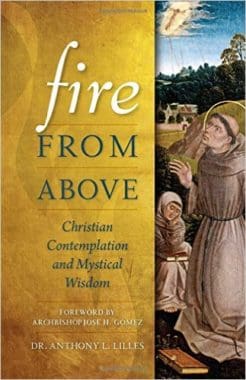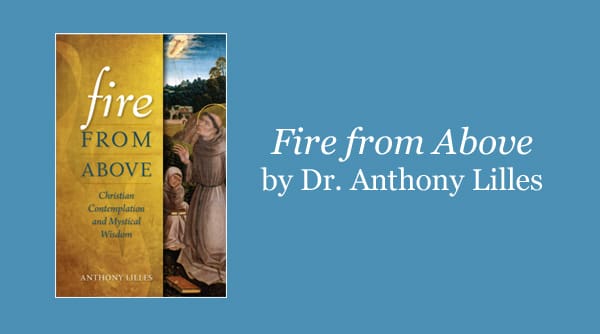God’s Mysterious Absence in Deep Prayer
Contemplation does not shield us from doubt or suffering. Christian prayer baptizes our doubts and difficulties, trials and tests in faith. Violently opposing forces, faith confronts doubt in prayer even in the midst of very difficult circumstances.
Saint Thérèse of Lisieux lived a life of intense prayer and friendship with the Lord. In the last weeks of her short life, after suffering for more than a year from tuberculosis, she was ordered to finish her autobiography. It was during this suffering that she began to understand that there were people who had lost their faith. This insight moved her with deep compassion:
“Although I would not have believed it before, Jesus has given me a sense that there really are souls without faith. Through an abuse of grace, they have lost the true joy that comes from this priceless treasure.”
Until these final months of her life, she was completely mystified by believers who once had this gift but had lost it. She simply presumed everyone knew the joy that she found in her faith. Why would they not do everything possible to try to get it back? Now in her terminal illness, God helps her question this presumption.
 By doing so, He is implicating her in His work of mercy. Mercy suffers the misery of others to relieve their pain and restore their sense of dignity. To this end, the Lord communicates a difficult and unfamiliar message:
By doing so, He is implicating her in His work of mercy. Mercy suffers the misery of others to relieve their pain and restore their sense of dignity. To this end, the Lord communicates a difficult and unfamiliar message:
“He allowed a thick darkness to invade my spirit. The very thought of heaven, previously a consolation, became the source of struggle and torment.”
The Lord wants her to understand what those who do not know Him suffer. This means that He allows her to suffer the absence of the joy of our faith. Thus the consolation of certain doctrines, such as the doctrine of heaven, is no longer something that she experiences in prayer. The Lord continued to communicate to her by this absence of joy to her last life’s breath:
“This trial was to last more than a few days or a few weeks. It would continue until the hour set by God Himself. This hour has not yet come.”
God permits the absence of joy only for an important reason. He does not withhold a blessing unless to give us a greater blessing. In order to understand the absence of joy that Saint Thérèse suffered, it is helpful to consider the greater blessing that the Lord was giving her.
She writes about a spiritual joy she finds in the midst of her suffering. The suffering she writes about is not merely a physical experience, but above all a spiritual trial. From her experience, we can understand that spiritual joy is not due to the absence of spiritual suffering. Instead, this joy from above is found in the midst of a suffering her spirit endures here below.
It is important to note that in the Christian life of prayer, spiritual maturity does not consist in an absence of suffering. In this life, the more we love, the more we suffer — physically, psychologically, and above all spiritually. Real love is not limited by the merely convenient. It costs. For the one who loves, however, whatever the sacrifice, it is always too little.
When love costs nothing, it does not mean very much. Without suffering, love risks being no more than a sentimental thought or a good intention. What it costs helps us see what the love actually means. Suffering patiently all kinds of difficulties for the Lord and for others proves our love and makes it real.
The reason this darkness was a particular trial for Saint Thérèse was that in the past, when suffering difficult times, she was able to sustain herself by entering into deep prayer and resting in the thought of heaven. Now the thought of heaven was almost impossible to bear.
It was not that she did not believe in heaven. She held it as a matter of faith. But her own personal relationship with what she believed left her in torment. She simply could not believe that she could be happy in the heaven that she professed. Whatever light this belief offered was withheld from her. Just what beatitude really was, as opposed to what she imagined it to be, seems to have deeply troubled her spirit.
To live by faith means to be faithful to God even when our feelings, our thoughts, and our imagination cannot find Him. This trial of spiritual darkness is so overbearing that we can feel tempted to doubt, to forsake our life of faith. Yet suffering this darkness that causes people to doubt is not the same as doubting. Instead, if we choose to believe in the merciful love of God anyway, we make of even this suffering a powerful sacrifice of praise.
What is the difference between doubt and suffering the lack of joy doubt causes? Faith. When we believe in the love of God even when we do not feel it, we are exercising our faith. When we lift our hearts in prayer even when God does not seem to be there, our prayer is all the more precious to Him. He sees the sacrifice, and He understands the cost.
Jesus Himself did not brush over our human experience during His Passion and death. He fully entered into it — enjoying and suffering to the last drop everything about our life in this world, except sin itself. Although He never doubted, He did share with us the sometimes dehumanizing anguish that doubt can engender in those who love or want to love God.
Jesus prayed Psalm 22 as he struggled to breathe on the Cross. This is a prayer of a man tormented by his enemies, rejected by society, tortured, and left to die in humiliation. Although it ultimately becomes a prayer of confidence in God, the psalm begins with a crucified man’s agonizing question to God: “Why have you abandoned me?”
By saving us in this way, even to the point of bearing the suffering of doubt, Jesus opens all of human experience, including doubt, to the mercy of God. If doubts oppress us and make prayer difficult, we do not suffer this alone. The Lord has entered this experience too.
Darkness is an ordeal but not a sin. Doubt, on the other hand, is a choice. Ordeals are given us to help us grow and to make our love for God and one another more meaningful, more beautiful. When, in the face of difficult darkness, we renounce doubt and choose to believe in God’s love, our faith becomes strong and so does our ability to pray.
Christians can suffer the darkness of doubt even if they do not choose to doubt but instead choose to believe. The extent to which Christ has already suffered this same darkness is revealed on the Cross. He has descended into our darkest experiences so that we would not suffer alone, so that in looking at Him, we might recover our dignity. If we also confront this darkness, we do not do so alone. He is with us. By faith, even this darkness of doubt can become a way to share in Christ’s salvific mission.
This means that if anyone is struggling with such darkness in his life, it is still possible to believe even in the face of such overbearing difficulty. It is simply a matter of crying out with faith in prayer. It is a matter of asking and begging God for the strength to persevere in love in the midst of this trial. When we choose to believe in spite of such darkness, when we raise our hearts in prayer even when it feels as if there is no reason to do so, this is when we are in special solidarity with the Lord.
+
This article is from a chapter in Fire from Above, which is available through Sophia Institute Press.
Art for this post is from the cover of Fire from Above and is used with permission.





